Washington D.C. – US Treasury Secretary Scott Bessent delivered candid remarks about the current state of India-US relations, with Scott Bessent On India US discussions highlighting the complicated nature of bilateral ties. Speaking in a television interview on Wednesday, the Scott Bessent On India US commentary came as Washington implemented additional 25% tariffs on Indian goods, specifically targeting New Delhi’s purchases of Russian oil.
The Scott Bessent On India US analysis revealed significant frustration within the Trump administration regarding the pace of trade negotiations. The Treasury Secretary expressed his belief that despite current tensions, the world’s largest democracy and the world’s largest economy will eventually find common ground. This optimistic outlook in the Scott Bessent On India US statement contrasts sharply with the punitive measures currently being implemented.
Trade Negotiations Face Significant Hurdles
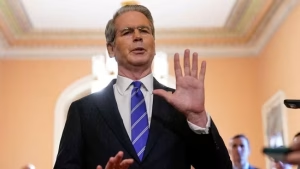
The Scott Bessent On India US trade discussion revealed deep disappointment over stalled negotiations that began shortly after Trump’s announcement of sweeping global tariffs on April 2. According to the Treasury Secretary’s Scott Bessent On India US assessment, he had initially expected India to be among the first countries to reach a comprehensive trade deal with Washington.
“The Indians came in very early after Liberation Day to start negotiating on tariffs, and we still don’t have a deal,” the Scott Bessent On India US commentary revealed. The Treasury Secretary had anticipated completing an agreement with India by May and June, describing much of India’s negotiation approach as “performative” and accusing New Delhi of “tapping us along” in trade discussions.
The Scott Bessent On India US critique extended beyond trade mechanics to encompass broader strategic concerns, particularly India’s continued energy relationship with Russia. This multi-faceted approach in the Scott Bessent On India US analysis demonstrates how economic and geopolitical issues have become intertwined in bilateral relations.
Russian Oil Purchases Create Diplomatic Friction
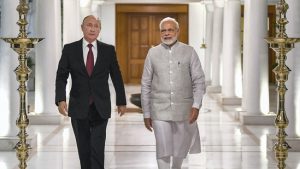

A central theme in the Scott Bessent On India US discourse involves India’s continued purchases of Russian crude oil, which the Treasury Secretary characterized as “profiteering” behavior. The Scott Bessent On India US position reflects Washington’s frustration with New Delhi’s energy policies, despite India’s arguments about market-driven decisions and the need for affordable energy sources.
The punitive 25% tariff specifically targeting Russian oil purchases represents a significant escalation in trade tensions, as highlighted in the Scott Bessent On India US commentary. Indian officials have termed these tariffs “unjustified,” particularly given that larger buyers like China have escaped similar penalties, creating what India considers an unfair disparity in treatment.
External Affairs Minister S Jaishankar’s weekend response, stating that nobody forces America to buy Indian products, prompted further Scott Bessent On India US reactions. The Treasury Secretary criticized this stance while acknowledging the complexity of the situation, where European nations also purchase refined products made from Russian oil.
Leadership Relations Remain Strong Despite Tensions
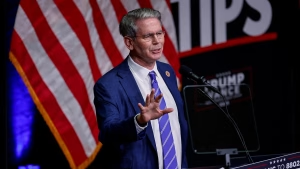
Despite trade disputes and policy disagreements, the Scott Bessent On India US assessment maintained that President Trump and Prime Minister Modi continue to enjoy strong personal relationships at the leadership level. This diplomatic foundation provides hope for eventual resolution of current tensions, according to the Treasury Secretary’s analysis.
The Scott Bessent On India US evaluation suggests that high-level political relationships may ultimately override current economic disputes. This perspective indicates that both sides recognize the strategic importance of maintaining broader bilateral cooperation despite specific policy disagreements over trade and energy issues.
US Claims Negotiating Advantage in Trade Disputes
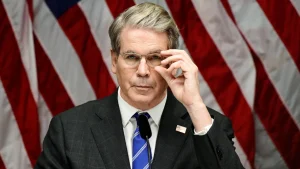

The Scott Bessent On India US strategic assessment included claims that America holds significant advantages in current trade disputes. The Treasury Secretary argued that deficit countries typically have stronger negotiating positions, suggesting that India’s large trade surplus with the United States creates vulnerabilities for New Delhi.
“When there is a schism in trade relations, the deficit country is at an advantage. It’s the surplus country that should worry,” the Treasury Secretary explained in his Scott Bessent On India US analysis. This perspective frames current tariff implementations as strategic pressure rather than punitive measures.
Economic Impact and Future Prospects
The comprehensive Scott Bessent On India US discussion addressed concerns about potential currency challenges, particularly regarding India’s participation in BRICS initiatives. However, the Treasury Secretary dismissed threats about the rupee becoming a reserve currency, noting its current weak position against the US dollar.
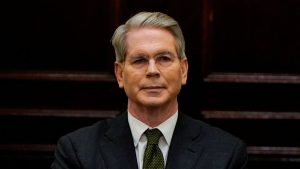

The implemented tariffs now total up to 50% on Indian goods including garments, gems and jewelry, footwear, and chemicals when combined with existing reciprocal measures. These tariffs affect nearly 55% of India’s $87 billion merchandise exports to the United States, creating significant competitive disadvantages compared to countries like Vietnam, Bangladesh, and China.
Prime Minister Modi’s Monday statement emphasizing protection for farmers and small producers indicates India’s resolve to resist pressure while maintaining negotiation possibilities. Indian officials describe their response as “restrained and responsible” while keeping doors open for future trade deals, suggesting both sides recognize the importance of eventual cooperation despite current tensions.

